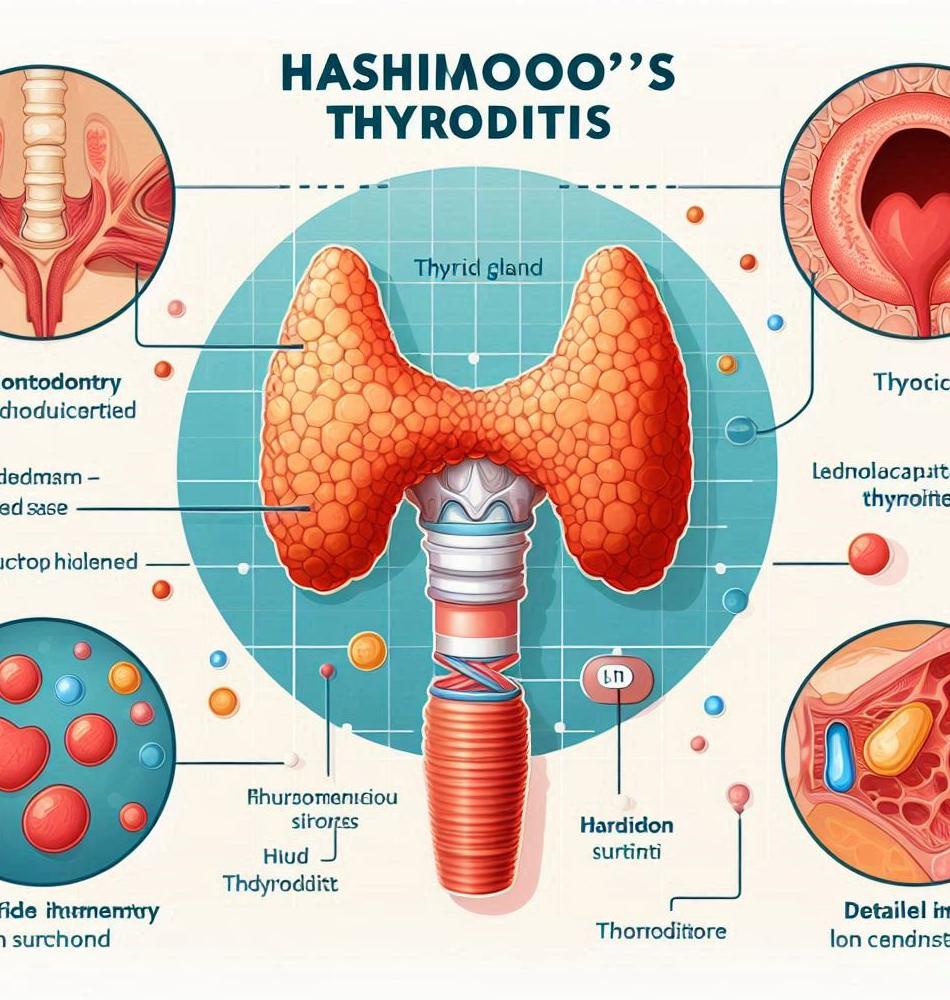What Not to Eat When You Have Hashimoto's? 🥗
Discover the essential foods to avoid if you have Hashimoto’s Thyroiditis, ensuring a healthier lifestyle while managing your condition.
Understanding Hashimoto's Thyroiditis 🌼
Hashimoto's Thyroiditis is an autoimmune disorder affecting millions of people worldwide. It occurs when the immune system mistakenly attacks the thyroid gland, leading to inflammation that can impair its function. Managing this condition often extends beyond medication. Lifestyle choices, particularly diet, play a significant role. For those grappling with Hashimoto's, knowing what not to eat can be just as crucial as understanding what you should consume.Importance of Diet in Hashimoto's Management 🍽️
Diet has been shown to influence autoimmune diseases, including Hashimoto's. Many foods can trigger inflammation or hinder hormone production, worsening the symptoms. Therefore, a well-considered diet can help mitigate the challenges associated with this condition.Foods to Avoid When Living with Hashimoto's 🚫
To effectively manage Hashimoto's, it's essential to recognize specific categories of foods that could exacerbate the condition. Here are some of the primary offenders:Gluten-Containing Grains 🌾
Many individuals with Hashimoto's also have gluten sensitivity. Consuming gluten can lead to increased inflammation and damage to the gut lining. It's advised to avoid:- Wheat- Barley- Rye- TriticaleWhy Gluten Matters? 🤔
The link between gluten and thyroid issues runs deep. Gluten can trigger an immune response, making it crucial to eliminate it from the diet.Highly Processed Foods 🥡
Eating highly processed foods can lead to increased inflammation in the body. These often contain unhealthy preservatives, unhealthy fats, and sugars that can jeopardize your thyroid function. Common processed foods to steer clear from include:1. Fast food2. Sugary snacks3. Canned or boxed mealsNightshade Vegetables 🌶️
Though nightshade vegetables are healthy for many people, they may cause sensitivity in some individuals with autoimmune conditions. It can be wise to limit their intake. Nightshade vegetables typically include:- Tomatoes- Potatoes- Eggplants- Bell peppersWhy Avoid Nightshades? 🌙
The alkaloids in nightshade vegetables could potentially lead to increased inflammation for some individuals. Monitoring your body's response to these foods is recommended.Listening to Your Body 🎧
While there are general guidelines on food restrictions, it's essential to listen to your body. Consider the following points:The Elimination Diet 🤷♀️
An elimination diet is a practical approach. By removing specific foods and gradually reintroducing them one at a time, you can identify food sensitivities.Here is how to do an elimination diet: 🔄
1. Remove common allergens such as dairy, soy, gluten, and nuts for 30 days.2. Gradually reintroduce one food category every 3-4 days.3. Monitor symptoms, noting any reactions.This process can be highly illuminating, helping you understand which foods trigger inflammation.
.png)






